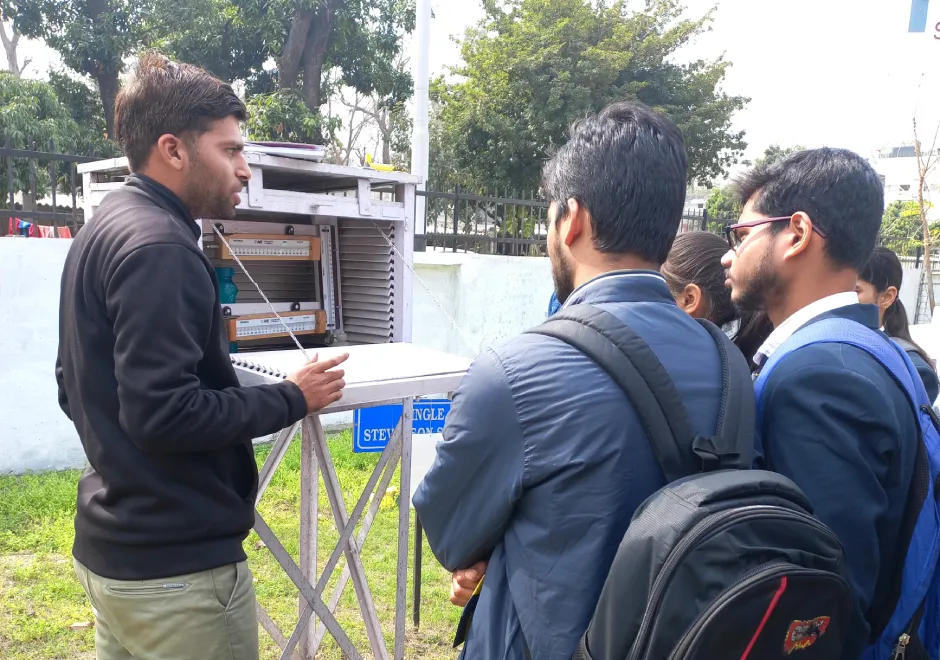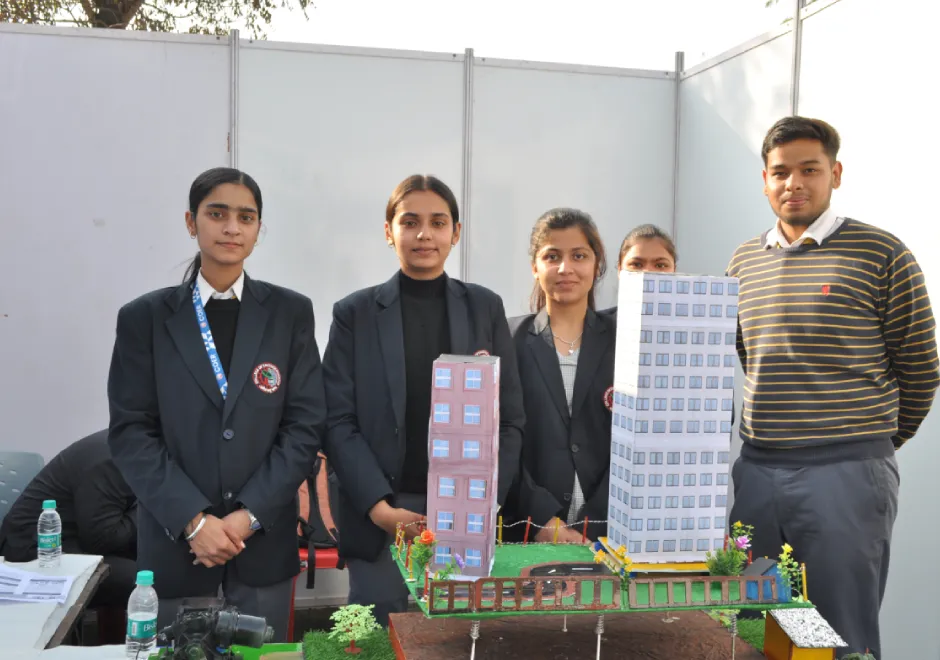
Master of Technology in Structural Engineering
Department of Civil Engineering
Duration
2 Years
Eligibility Criteria
Passed Bachelor’s Degree or equivalent in the relevant field. Obtained at least 50% marks (45% marks in case of candidates belonging to reserved category) in the qualifying examination.

A Master of Technology (M.Tech) in Structural Engineering is a two-year postgraduate program
focusing on advanced concepts in structural analysis, design, and construction Students delve into topics like seismic design, advanced structural mechanics, and sustainable infrastructure. The program includes coursework, research projects, and industry internships to equip graduates with expertise in designing safe, innovative, and sustainable structures. It prepares them for roles in structural consultancy, research institutions, construction companies, and academia.
Apply NowAdmissions 2026
Find your path to Success
Curriculum
-
Computer Aided Analysis of Structures
-
Structural Dynamics
-
Advanced Structural Analysis
-
Structural Materials
-
Department Specific Elective I
-
Computer Aided Analysis and Design Lab
-
Finite Element Method of Structural Analysis
-
Theory of Plate & Shells
-
Earthquake Resistant Design of Buildings
-
Advanced Concrete Structures
-
Department Specific Elective II
-
Finite Element Analysis Lab
-
Research Methodology
-
Advanced Foundation Design
-
Advanced Concrete Technology Lab
-
Seminar
-
Dissertation: Part I
-
Dissertation: Part II
Career Path
Popular job roles in this field include.
- Structural Engineer
- Project Manager
- Building Information Modelling Specialist
- Construction Manager
- Structural Design Engineer
- Site Engineer
- Design Checker
- Contract Administrator
- Technical Advisor
- Contract Inspector

Program Outcomes POs
-
PO1
Problem analysis: Identify, formulate, review research literature, and analyze complex engineering problems reaching substantiated conclusions using advanced understanding of mathematics and engineering.
-
PO2
Design/development/execution of solutions: Design sustainable solutions for complex engineering problems and design system components or processes that meet the specified needs with appropriate consideration for the public safety, and the cultural, societal, legal and environmental considerations.
-
PO3
Conduct investigations of complex problems: Use research-based knowledge and research methods including design of experiments, analysis and interpretation of data, and synthesis of the information to provide valid conclusions.
-
PO4
Modern tool usage: Create, select, and apply appropriate techniques, resources, and modern engineering and IT tools including prediction and modelling to complex engineering activities with an understanding of the limitations.
-
PO5
Ethics: Apply ethical principles and commit to professional ethics and responsibilities and norms of the engineering practice.
-
PO6
Communication: Communicate effectively on complex engineering activities with the engineering community and with society at large, such as, being able to comprehend and write effective reports and design documentation, make effective presentations, and give and receive clear instructions.
-
PO7
Project management and finance: Demonstrate knowledge and understanding of the engineering and management principles and apply these to one’s own work effectively, as a member and leader in a multidisciplinary and/or diverse team, to manage projects and in multidisciplinary environments.
-
PO8
Life-long learning: Recognize the need for and have the preparation and ability to engage in independent and life-long learning in the broadest context of technological change.
-
PO9
Leadership in research and practice: Use a combination of technical, managerial and soft skills to play the leadership role in research and practice.
-
PO10
Engineer and Society: Apply reasoning informed by the appropriate knowledge to asses societal, safety, legal issues and the consequent responsibilities relevant to engineering practice.
Program Specific Outcome PSOs
-
PSO1
Demonstrate knowledge and understanding of the engineering and management principles, effectively manage structural engineering projects and in multidisciplinary environments considering economic and financial factors.
-
PSO2
Create, select, learn, and apply appropriate techniques, resources, and modern engineering tools such as CAD, FEM, and mathematical modeling to design smart, sustainable, and resilient structures.
-
PSO3
Analyze complex structural engineering problems and apply independent judgment for synthesizing information to conduct intellectual research in a wider, theoretical, practical, and codal context.
-
PSO4
Communicate effectively and confidently on complex structural engineering activities with the engineering community and with society at large.
-
PSO5
Ability to accomplish and write efficient reports and design documentation by adhering to appropriate codes, making effective presentations, and give and receive clear instructions for advanced research.
Program Educational Objectives PEOS
-
PEO1
To develop technical knowledge and skills in the area of Structural Engineering at postgraduate level.
-
PEO2
To develop the ability to undertake R&D in the field of Structural Engineering.
-
PEO3
To develop the generic skills such as life-long learning, creativity, problem solving, team work, lifelong learning and leadership, professional ethics and values.









